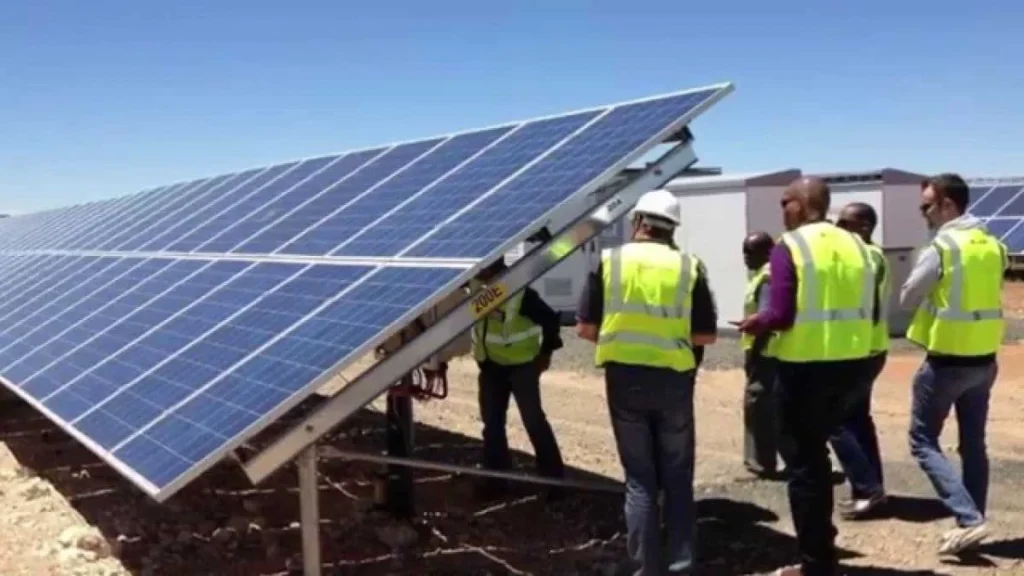CurrentReport Blog The Centre for the Promotion of Private Enterprise (CPPE) has expressed strong opposition to the Federal Government’s proposed ban on the importation of solar panels, warning that the move could exacerbate Nigeria’s already dire energy crisis. In a statement released on Tuesday, Dr. Muda Yusuf, the CEO of CPPE, urged the government to reconsider the policy, emphasizing its potential to hinder the adoption of renewable energy solutions in the country.
The statement follows a recent proposal by Uche Nnaji, the Minister of Science and Technology, advocating for a ban on solar panel imports in a bid to encourage domestic production. While the CPPE supports the vision of boosting local manufacturing and reducing dependence on foreign imports, it cautioned that such a policy should be implemented gradually, ensuring that Nigeria’s domestic production capacity is robust enough to meet demand.
Energy Crisis and Solar Panel Adoption
Nigeria currently faces one of the worst energy access rates globally, with a per capita electricity consumption of just 160 kWh—significantly lower than the sub-Saharan average of 350 kWh. The CPPE emphasized that solar energy adoption has been one of the most effective initiatives in addressing this energy deficit. Over the last two years, the use of solar solutions has gained significant traction, especially due to rising energy costs and power shortages across the country.
A sudden ban on solar panel imports, according to CPPE, would hinder this progress. With domestic production capacity still limited, a ban could lead to a scarcity of solar panels in the market, driving up costs and making solar energy solutions unaffordable for most Nigerians. This could ultimately worsen the country’s energy access challenges and create even more barriers for households, small businesses, and rural communities seeking affordable energy alternatives.
Cost of Solar Solutions and the Need for Gradual Transition
CPPE also highlighted the high costs associated with acquiring solar energy solutions in Nigeria, noting that many Nigerians already struggle with the current pricing. Banning imports would only escalate these costs, putting solar energy out of reach for the average citizen. Instead, the think tank called for policies that focus on driving affordability and creating a more accessible market for renewable energy solutions.
While CPPE supports the goal of achieving self-reliance in solar panel production and conserving foreign exchange, it stressed the importance of a well-planned and gradual transition. The group argued that a hasty decision to phase out imports could disrupt the market, leading to unintended consequences such as energy shortages and increased costs.
Call for Strategic Policy Implementation
In conclusion, CPPE urged the government to ensure that Nigeria’s local solar panel production capacity is adequately developed before any import restrictions are imposed. A careful, phased approach to transitioning towards local manufacturing is essential to avoid further exacerbating the country’s energy crisis. The think tank called on policymakers to focus on building infrastructure, improving local production capabilities, and making solar energy solutions more affordable for Nigerians.
The debate surrounding the proposed ban on solar panel imports continues to draw attention, with many experts stressing the need for balanced policies that prioritize both self-reliance and sustainable energy access for all Nigerians. As Nigeria works towards a more energy-secure future, the role of solar energy will be crucial, but it must be supported by strategic policies that foster growth without sacrificing accessibility or affordability.












